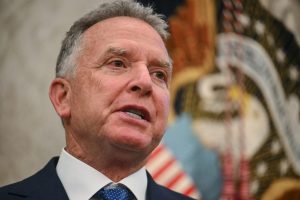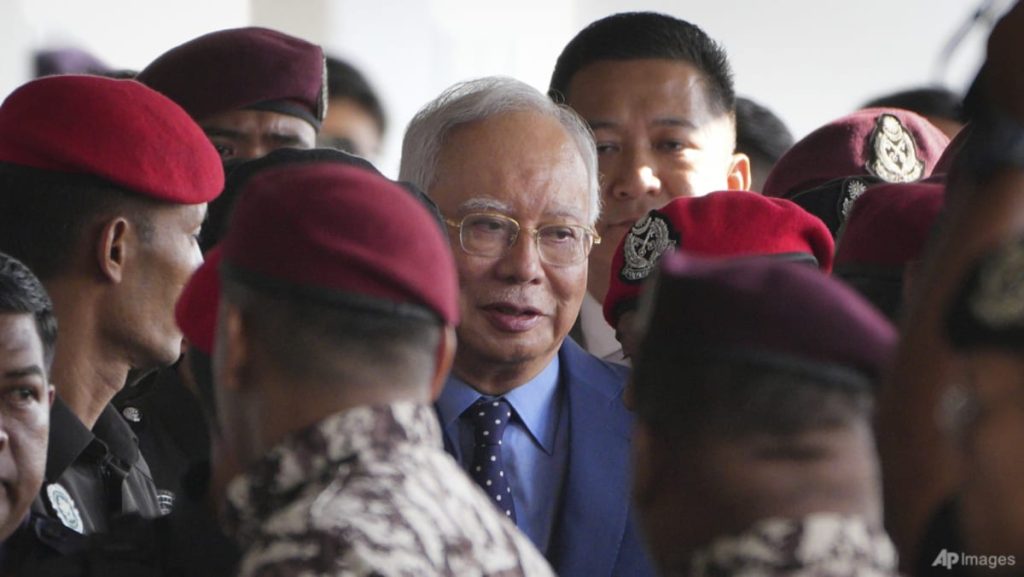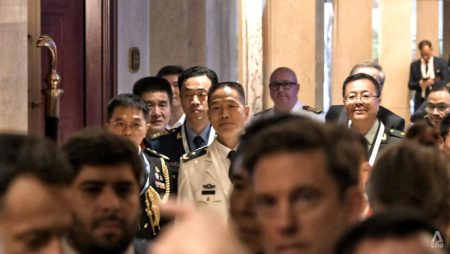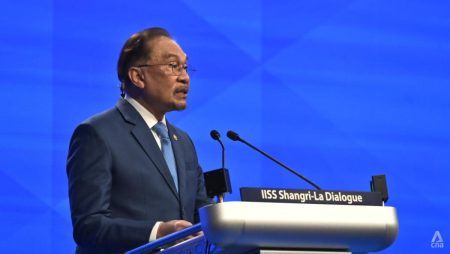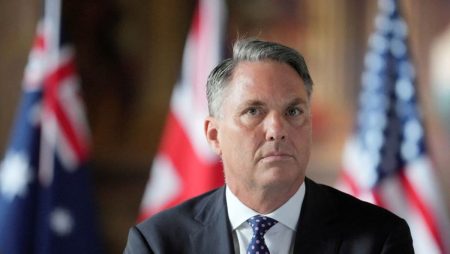On December 2, 2023, former Malaysian Prime Minister Najib Razak, currently imprisoned for corruption, began his defense in a high-profile graft trial involving allegations of over US$500 million in bribes and multiple counts of money laundering. Najib, who is already serving a six-year sentence related to the infamous 1MDB scandal, asserts that the legal actions against him are politically motivated, claiming that they stem from his ousting in the 2018 elections. This defense marks a continuation of his long-standing claims of political persecution as he faces severe charges, including up to 20 years in prison for each count of abuse of power if convicted.
During his court appearance, Najib presented himself in a formal navy blue suit, although he struggled with coughing throughout his statement. This trial revolves around significant financial discrepancies involving 2.27 billion ringgit (approximately US$510 million), particularly focusing on the alleged misuse of funds funneled through Tanore Finance Corp. U.S. authorities have linked this corporation to the suspect transfer of money from the troubled 1MDB fund, suggesting Najib’s personal bank accounts were beneficiaries of these dubious transactions.
A notable aspect of Najib’s defensive strategy is his public acknowledgment of the 1MDB scandal occurring under his leadership while vehemently denying any personal knowledge or involvement in the illegal activities associated with it. His legal team, led by prominent lawyer Muhammad Shafee Abdullah, is resolutely committed to contesting the charges and portraying Najib as a victim of political machinations rather than a perpetrator of corruption. This approach aims to shift the narrative surrounding the case, underscoring their argument of political bias influencing the prosecution.
In a significant development during the proceedings, Justice Collin Lawrence Sequerah allowed Najib to read his extensive witness statement totaling 525 pages, a move that could demonstrate his determination to clear his name. Reading his testimony can also be interpreted as a strategy to engage the court and the public, as Najib seeks to present his version of events and clarify his stance on the charges. Furthermore, Najib’s wife, Rosmah Mansor, sat in the courtroom’s public gallery, indicating familial support during the tense legal challenges he faces.
As the trial progresses, Najib and his defense team are poised to confront the evidence presented by the prosecution. The stakes are exceedingly high, not only because of the potential lengthy sentences but also due to the implications for Malaysian politics and governance. Najib’s case reflects broader issues of corruption, accountability, and the rule of law in Malaysia, resonating with the public’s ongoing desire for political reform following the 1MDB scandal that significantly tarnished the nation’s reputation.
Overall, Najib Razak’s ongoing trial serves as a critical touchstone for Malaysia’s socio-political climate, with the former leader’s claims of political orchestration against him highlighting the intricate struggles within the country’s legal and political ecosystems. As he navigates through his defense, the outcomes could have far-reaching ramifications, not only for Najib personally but also for the political landscape of Malaysia as it deals with the fallout from one of the most significant financial scandals in its history. The proceedings will undoubtedly shape public perception of corruption and governance in Malaysia moving forward.
